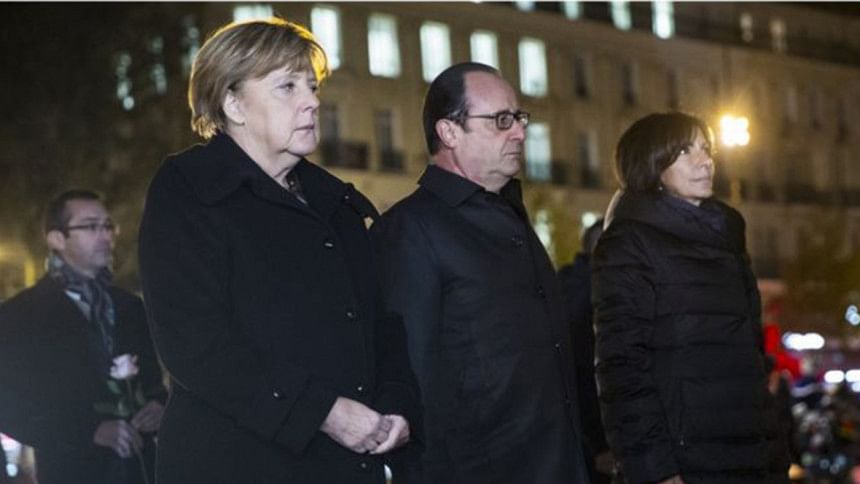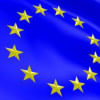Germany vows to do more against IS

Germany will do more in the fight against Islamic State militants, Chancellor Angela Merkel has said.
It was Germany's "duty to reflect" and to "act quickly", Merkel said in Paris, after being urged by President Hollande to commit more resources, in the wake of the Paris attacks.
France has invoked a clause requiring EU member states to provide military assistance following the attacks.
IS has said it was behind the attacks on 13 November which killed 130 people.
At least one suspected attacker is still at large.
"We are stronger than any terrorism. Nevertheless, terrorism must be fought with all possible force," said Merkel.
IS "can't be convinced with words, it must be fought with military means," she added.
French MPs have voted overwhelmingly to continue air strikes against IS in Syria beyond early January.
And all EU nations had agreed to provide direct or indirect support for French operations in Syria or other regions where French forces are operating, French Defence Minister Jean-Yves Le Drian said.
Germany had earlier announced it was deploying 650 troops to Mali, a move that Merkel said was designed to provide relief to the 1,500 French soldiers already stationed there.
Germany is also providing weapons and training for Kurdish forces fighting IS in Iraq.
Borders under strain
Merkel and Hollande also addressed European border controls, which have come under renewed scrutiny after it emerged that two of the suicide bombers at the Stade de France had travelled into Europe through Greece.
They agreed that better controls were needed at the EU's external borders.
But Hollande said it was important not to see migrants, many of whom were fleeing IS, as a terror threat, even though some extremists may have used the flow of migrants into Europe for their own ends.
Earlier, his Prime Minister Manuel Valls argued that European countries could not accept so many refugees.
Many of the hundreds of thousands of migrants and refugees who have entered the EU since August have headed through the Western Balkans to Germany, which expects around one million asylum applications this year alone.
Several EU countries have imposed border controls in recent weeks - despite the Schengen system of passport-free movement - in an attempt to reduce the number of arrivals.

 For all latest news, follow The Daily Star's Google News channel.
For all latest news, follow The Daily Star's Google News channel. 








Comments